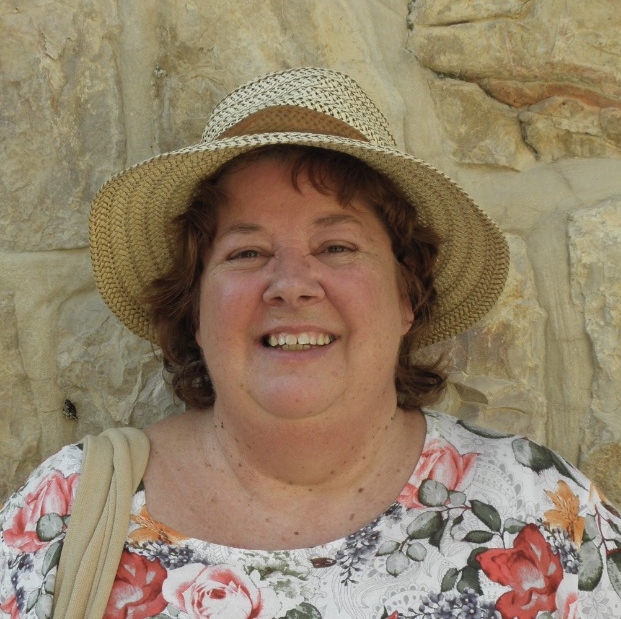The oil of joy for mourning

On June 8, ALL ISRAEL NEWS rejoiced with the international community to hear that four of our hostages held by Hamas terrorists, Almog Meir Jan, Andrey Kozlov, Shlomi Ziv and Noa Argamani, had been rescued from the Gaza Strip. Good news, indeed, but it seems that in Israel, joy is always mixed with sorrow.
Arnon Zamora, an officer of the elite police counter-terrorism unit, was killed during the rescue. Arnon was raised in my town of Mevaseret Zion and his parents still live here. On the day of his funeral, thousands lined the streets of Mevaseret to honor him, waving Israeli flags in tribute.
Noa Argamani was reunited with her mother who is suffering from end-stage terminal cancer, and the father of Almog Meir Jan tragically passed away just hours before his son was brought home to Israel.
The hostages initially appeared to be in good shape physically but confinement in a small space, malnutrition, lack of light and exercise have all left a significant mark on their physical health, with muscles wasted away and other bodily systems damaged. They also suffered severe psychological abuse daily during their 8 months of captivity. It will be a very long road to recovery.
How can we cope with such simultaneous joy and sorrow?
Many years ago, I was asked to speak at a retreat for Ethiopian believers. Most had newly arrived in Israel and were in deep mourning for family members and friends left behind, or who had died along the way, or were being held in Sudanese prisons or just missing. What could I say to these people?
The day before I joined them, I was on my knees desperately seeking a word from the Lord, when suddenly I found myself laughing and crying at the same time. I wondered if I had lost my mind, but I was still sane enough to ask the Lord what was going on. Then I realized He was showing me His heart. When He looks upon those who call upon His name, He is filled with joy and laughter, but when He looks upon the lost, and upon all the evil in the world, he weeps. His heart is big enough to contain both emotions even though they seem contradictory to us. And if we have His heart by His indwelling Spirit, we also can always rejoice even in the midst of deep mourning. This was the message I took to these dear brothers and sisters in the Lord.
The Apostle Paul exhorted us to “Rejoice always”. How is that possible when we live in a world so broken and so full of suffering? Yet, Paul wasn’t being trite or superspiritual. He had suffered more than most, and lived under the cruel, and brutal Roman Empire, yet he could still rejoice. He said,
“ Rejoice in the Lord always. I will say it again: Rejoice!... Do not be anxious about anything, but in every situation, by prayer and petition, with thanksgiving, present your requests to God. And the peace of God, which transcends all understanding, will guard your hearts and your minds in Christ Jesus” (Ephesians 4:3-7).
In Isaiah 61:3 God promises us a Messiah who would,
“comfort all who mourn, and provide for those who grieve in Zion
to bestow on them a crown of beauty
instead of ashes,
the oil of joy
instead of mourning,
and a garment of praise
instead of a spirit of despair.
Our English translations mostly translate the Hebrew preposition ‘tachat’ as ‘for’ or ‘instead of’ or ‘in the place of’, and this is legitimate, but ‘tachat’ literally means ‘below’ or ‘under’. God does not always remove our mourning or suffering but he gives us a well of joy deep down in our hearts, underlying the emotions of mourning and pain. We can therefore feel joy and sorrow simultaneously. We do not need to be brought down by the ‘spirit of despair’, even in the worst of circumstances.
I have noticed that many believers around the world today are struggling with depression, as they try to deal with not only the great evils that have broken out in the world, pandemics, wars, extreme weather and political turmoil, but also deep personal crises, such as serious illness, family breakups, the loss of loved ones and financial ruin.
Here in Israel around 1 in 3 people are suffering from some degree of PTSD as the current war drags on and threatens to escalate into something much worse any day. Many have lost loved ones, many have seen and experienced terrible things, and all have been affected by the pervading sense of insecurity, fear, and sadness in our Land. As believers in Yeshua, we are not immune and we must be honest about our emotions, and not deny them. A false smiley face is not a good witness, but honesty is.
Last week I attended the funeral of a beautiful young man, who had committed suicide. I do not know what brought him to that point, but tragically more and more people, mainly the young, are taking their own lives. It has become imperative that we all take up the fight against hopelessness and depression.
Every day I ask myself how should I go about my life in such times. How can I maintain a healthy balance of joy and sorrow? I am not immune to the suffering and pain around me, and some days I feel full of sadness, sinking into the beginnings of depression. I know from experience that if I do not stop the process at that point, I will sink deeper and deeper into the ‘slough of despond’ and darkness. Once in that deep hole, it is very difficult to get out.
So, how can we fight depression? We can draw deeply from that well of joy that the Holy Spirit has put into our hearts when we were saved. We have tools and resources that God has provided, and above all, we have hope. How can I “rejoice always”?
Here are some practical ways I use to fight depression, sorrow and mourning:
1. Prayer is of course my first ‘go to’, though when I am feeling down, it is a very hard thing to do. I must, however, persevere and push through my reluctance. Then I can pour out my heart to God, even express my anger and negative feelings to Him. He is not shocked by anything I might be feeling or saying. Look at the Book of Job for example. Job went as far as accusing God of injustice. God did not strike him down, instead He answered by giving Job a deeper revelation of His divinity, majesty and power.
2. Thanksgiving. Thanksgiving is the great ‘reset’ of our hearts. Even in the worst circumstances, we can find reasons to give thanks. As we do so, our hearts will be refilled with joy, and our thoughts will break out of the ever-deepening spiral of negativity that leads to depression.
3. Praise and worship. Music and the singing of spiritual songs helps to ‘reset’ our minds and our hearts. They also release endorphins. I cannot sing well, but I shut myself in my home, find my favorite hymns and choruses on YouTube and sing at the top of my voice. It really helps. It stills my heart and brings me into right relationship with God.
4. Fellowship. When I am feeling down, I often just want to crawl into my room and cut myself off from everyone. I must fight this desire, because it is just at that time that I need my friends most. I need to talk to them, share my feelings and feel their care and love. When I do so, it often prompts them to do the same, and when they share their problems, it sometimes gives me a better perspective concerning my own, or at least we have the fellowship of ‘being in this together’.
Everyone needs at least one person they feel free to share their heart with, without being judged. We need to strive to be that person for our friends, and those around us who perhaps don’t have friends. In Hebrews 10: 24-25 it says,” And let us consider how we may spur one another on toward love and good deeds, not giving up meeting together, as some are in the habit of doing, but encouraging one another—and all the more as you see the Day approaching”.
5. Bible Study. We need to stir up hope and one way to do that is to study the Word. When we see God’s plan of redemption, his dealings with the people of Israel throughout history, his covenants and promises, the sacrifice and work of His Messiah, Yeshua, and His roadmap for the future, it restores and builds hope.
6. Remember what the Lord has done in your own life. God has proclaimed a cycle of feast days throughout the year for the people of Israel, and they are designed to make us remember what God has done. Yeshua also instituted the sacrament of communion and commanded us to keep it “in remembrance of Him”. We surely have many good things to remember of God’s faithful and loving dealings in our lives. God knows how fragile our memories are, but they are precious, and we constantly need to review them, keeping them alive, so that we can be encouraged.
7. Cultivate health in mind and body. We live at a fast pace in today’s world and many work long hours, and juggle family and congregational commitments. Exhaustion may bring illness, and feed depression. We need to know our own limits and learn to say “no” at times. We need time and space to feed the well of joy, refilling it daily. We need to cultivate healthy lifestyles, making time for quality time with the Lord and our loved ones, sleep, exercise, and do the things we enjoy. Yes, fun, laughter and taking pleasure in good things are all excellent antidotes for depression.
We also need to cultivate good habits of the mind. We need to turn off the TV sometimes, put aside our social media and filter carefully our news sources. Paul in his letter to the Philippians gave us good advice, saying, “Finally, brothers and sisters, whatever is true, whatever is noble, whatever is right, whatever is pure, whatever is lovely, whatever is admirable—if anything is excellent or praiseworthy—think about such things (Philippians 4:8).

Talia Voice grew up in New Zealand but came to Israel about 40 years ago. After teaching science in various schools, she is now retired and lives in Mevaseret Zion where she leads a home group and attends a congregation in Mevaseret. She is the author of the book “I’m Single, OK?” and writes on https://taliasjoy.com/.














